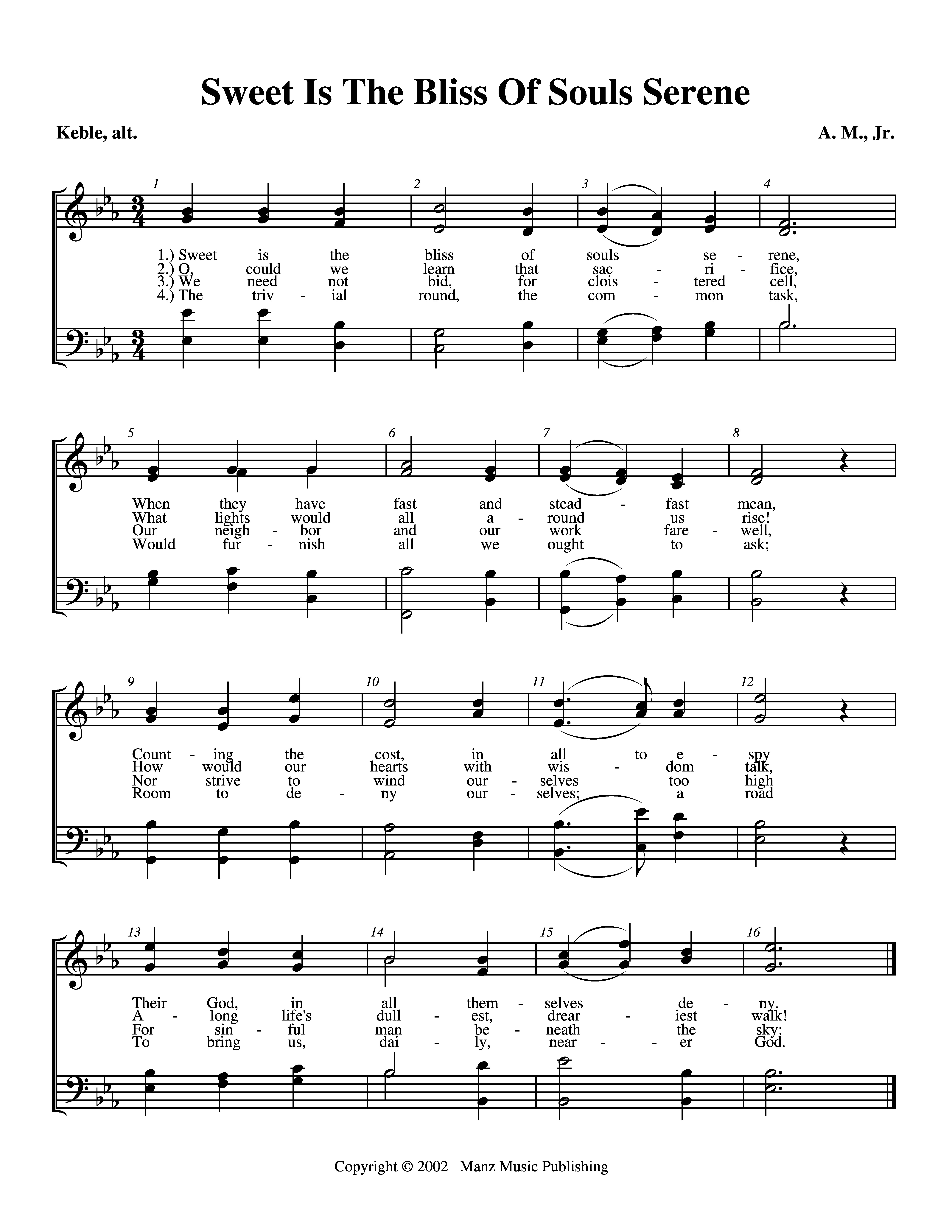Hymn Information
Sweet Is The Bliss Of Souls Serene
view music
Notes
L. M.
Lyrics
Sweet is the bliss of souls serene,
When they have fast and steadfast mean,
Counting the cost, in all to espy
Their God, in all themselves deny.
O, could we learn that sacrifice,
What lights would all around us rise!
How would our hearts with wisdom talk,
Along life's dullest, dreariest walk!
We need not bid, for cloistered cell,
Our neighbor and our work farewell,
Nor strive to wind ourselves too high
For sinful man beneath the sky:
The trivial round, the common task,
Would furnish all we ought to ask;
Room to deny ourselves; a road
To bring us, daily, nearer God.
When they have fast and steadfast mean,
Counting the cost, in all to espy
Their God, in all themselves deny.
O, could we learn that sacrifice,
What lights would all around us rise!
How would our hearts with wisdom talk,
Along life's dullest, dreariest walk!
We need not bid, for cloistered cell,
Our neighbor and our work farewell,
Nor strive to wind ourselves too high
For sinful man beneath the sky:
The trivial round, the common task,
Would furnish all we ought to ask;
Room to deny ourselves; a road
To bring us, daily, nearer God.
Uploaded on October 6th, 2008 at 11:00pm and has 289 views!
Comments
The last 10 hymns uploaded.
- # 1 - New Every Morning Is The Love (TTBB) (uploaded on Feb 16, 2026 at 09:27:03am)
- # 2 - O Saviour, Precious Saviour (TTBB) (uploaded on Feb 15, 2026 at 01:46:18pm)
- # 3 - Praise the Lord! Ye Heavens, Adore Him (TTBB) (uploaded on Feb 15, 2026 at 12:24:06pm)
- # 4 - O Jesus, King Most Wonderful (TTBB) (uploaded on Feb 15, 2026 at 11:31:24am)
- # 5 - Ancient Of Days (TTBB) (uploaded on Feb 12, 2026 at 09:46:57am)
- # 6 - Jesus, Priceless Treasure (TTBB) (uploaded on Feb 07, 2026 at 06:08:54am)
- # 7 - Join All the Glorious Names (TTBB) (uploaded on Feb 05, 2026 at 11:56:21am)
- # 8 - Lord Of All Being (TTBB) (uploaded on Jan 29, 2026 at 01:38:38pm)
- # 9 - The Comforter Has Come (TTBB) (uploaded on Jan 29, 2026 at 11:03:31am)
- #10 - Come, Holy Spirit, Heavenly Dove (TTBB) (uploaded on Jan 27, 2026 at 07:23:44am)

You can be the first!